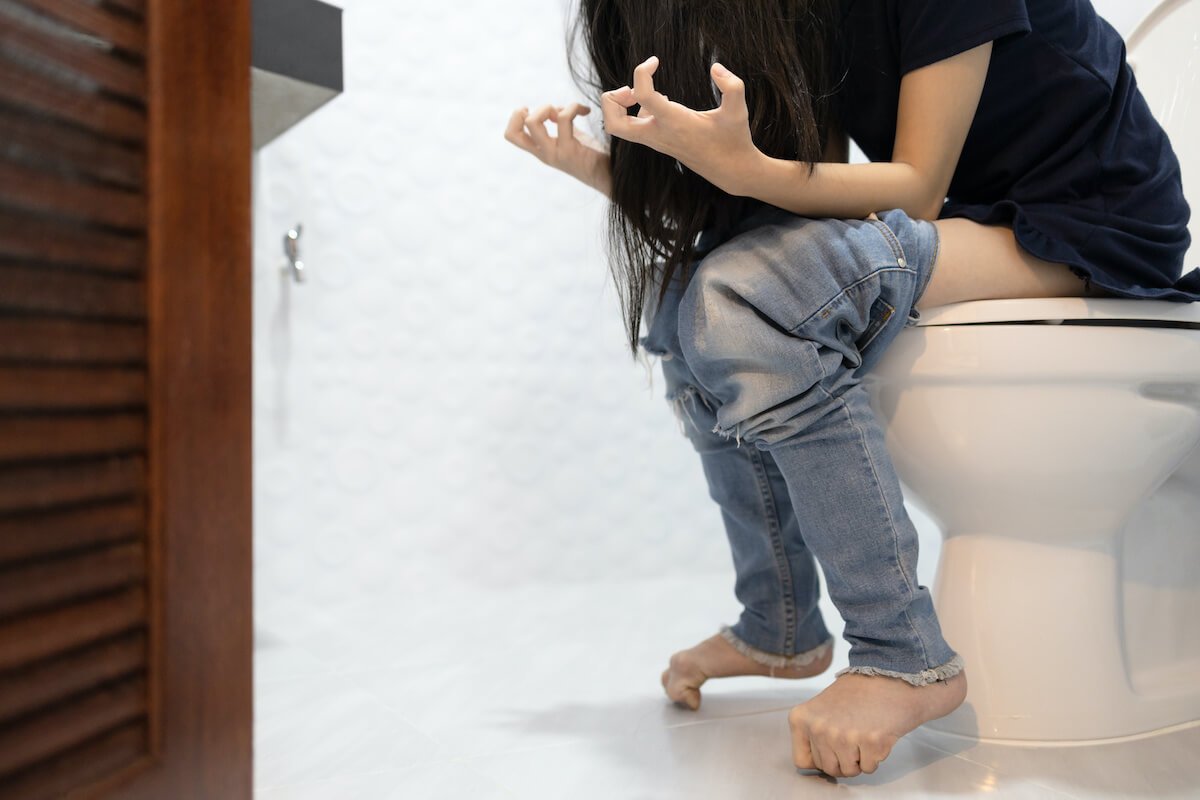Looking down the toilet and seeing blood can be shocking. When the alarm bell rings to indicate a problem, your thoughts can drift to many places. It can be shocking to find blood in the toilet or after cleaning. There are many possible causes, some are relatively harmless, some require treatment, and some may require urgent care.

Bleeding(berak berdarah) in the digestive tract is a symptom of the problem, not the disease itself. It usually occurs due to a disease that can be cured or controlled, such as hemorrhoids. The cause of the bleeding may not be serious, but it is important for your doctor to find the source of this symptom. The digestive or gastrointestinal (GI) tract includes the esophagus, stomach, small intestine, colon, rectum, and anus. Bleeding may come from one or more of these areas, it may come from small areas such as ulcers on the lining of the stomach, or it may come from larger problems such as inflammation of the colon.
If it is in your esophagus (the tube connecting your mouth and stomach), the causes may include:
- Esophagitis and gastroesophageal reflux. Reflux of stomach acid from the stomach or back into the esophagus can cause irritation and inflammation of the esophagus (esophagitis), which can cause bleeding
- Varicose veins. These are abnormally enlarged veins, usually located in the lower end of the esophagus or in the upper part of the stomach. They can burst and bleed. Cirrhosis is the most common cause of esophageal varices.
- Tears of MalloryWeiss. This is a tear in the inner wall of the esophagus. It is usually caused by severe vomiting. It can also occur due to factors that increase abdominal pressure, such as coughing, hiccups, or childbirth.
Stomach bleeding can be caused by:
- Gastritis. This is an inflammation in the stomach. Alcohol and some pain relievers can cause it.
- Ulcers. Those in the stomach can expand and erode through blood vessels, causing bleeding. In addition to medications, the most common cause is infection with a bacterium called Helicobacter pylori. Additionally, people with burns, electric shocks, head injuries, or cancer, as well as those who have undergone major surgery, can develop pressure-related gastric ulcers.
- Stomach cancer
Bleeding in the lower gastrointestinal tract (colon, rectum and anus) can be caused by:
- Hemorrhoids. These can be the most common causes of visible blood in the lower digestive tract, especially bright red blood. Hemorrhoids are enlarged veins in the anal area that rupture and produce blood, which can show up on toilet or toilet paper. Anal fissure. Tears in the lining of the anus can also cause bleeding.
- Colon polyps. These are the growths that can occur in the colon. Over time, some will turn into cancer. Colorectal cancer can also cause bleeding.
- Intestinal infection. Inflammation and bloody diarrhea can be caused by intestinal infections.
- Ulcerative colitis. Inflammation and extensive superficial bleeding caused by small ulcers can be the cause of blood in the stool
- Crohn’s disease is a disease of the immune system. It can cause rectal inflammation and bleeding.
- Diverticulosis is caused by a diverticulum, which is a small “bag” that protrudes from the wall of the colon.
- Blood vessel problems. As we age, there can be problems with the blood vessels in the large intestine, which can cause bleeding. This is not a normal part of aging, but it is more likely to happen later in life.
- Ischemic colitis. This means that there is not enough oxygen to enter the cells of the intestine. If there is not enough blood to reach the intestine, resulting in ischemia or insufficient oxygen and damage to the cells in the intestine, bloody diarrhea occurs, usually accompanied by abdominal pain.
Therefore, warning symptoms should not be ignored, and further evaluation and treatment by a doctor should be sought before the condition worsens.

Nancy Bonney is a health blogger and the founder of her own blog about fitness. She has been blogging for three years now and loves to share what she learns with others. Nancy enjoys reading, cooking, and staying active outdoors.












